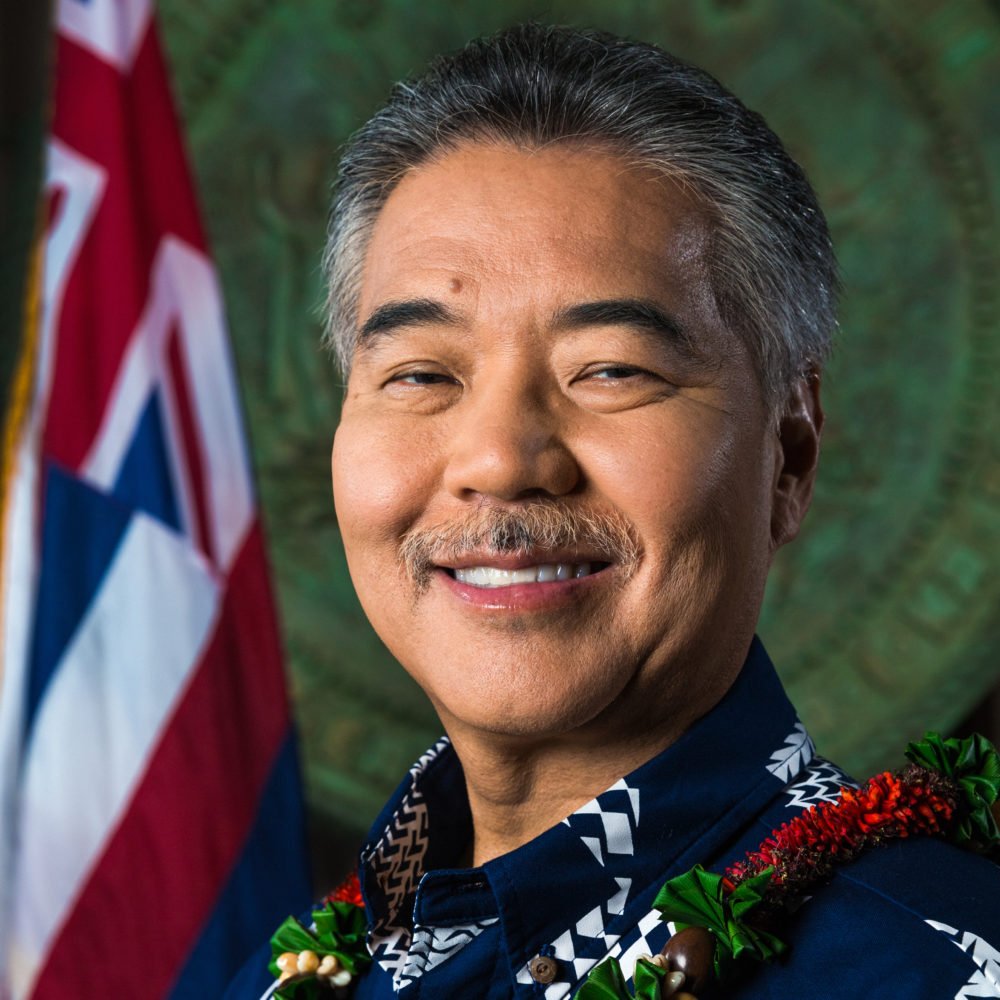
Governor David Y. Ige was sworn in as the eighth governor of the State of Hawai‘i on December 1, 2014. Governor Ige was born and raised in Pearl City and is the fifth of six sons of Tokio and Tsurue Ige
To have a state government that is honest, transparent and responsive to its citizens.
To change the trajectory of Hawai‘i by restoring faith in government and establishing the Hawaiian Islands as a place future generations choose to call home.
Empower our public schools and university, focus on 21st century skills and learning, and ensure schools provide a healthy and safe learning environment.
Build homes that people can afford, including rentals, to address the needs of those entering the work force. Renovate the state’s public housing facilities. Transition the homeless from sidewalks, beaches, and parks; provide them with the necessary services so they can attain more permanent housing. On O‘ahu, identify state lands near transit stations for housing, employment centers, daycare, senior centers, and community facilities.
Create a 21st century health system that improves access, treatment, and affordability for all Hawai‘i residents, beginning with our children, honoring our elders, and including rural communities on all islands.
Effective, Efficient, and Open Government
Restore the public’s trust in government by committing to reforms that increase efficiency, reduce waste, and improve transparency and accountability.
Promote economic diversification and policies that support growth, including attracting more air carriers to Hawai‘i, expanding the U.S. Customs Pre-clearance program, and upgrading and expanding broadband infrastructure. Recognize and support renewable energy initiatives and the military as crucial pillars of Hawai‘i’s economy.
Ensure a 100 percent renewable energy future in which we work together as a state, focusing on making solar and other technologies available for all.
Double local food production by 2020; develop water and energy resources to support this effort. Provide loans for farmers and more land for agriculture.
Foster environmental stewardship from mountain to sea. Protect and more efficiently use our fresh water supply. Provide state lands for public use and enjoyment.
Honor, respect, and promote Native Hawaiian culture and sustainability;
Support the Native Hawaiian community’s ongoing efforts for a Hawaiian-based governance structure.
Support the development and completion of public transit systems, including bus and rail. Deploy traffic mitigation initiatives to reduce congestion on our roadways.
Modernize our tax system, increase efficiency for taxpayers and hold accountable those who do not pay their taxes.